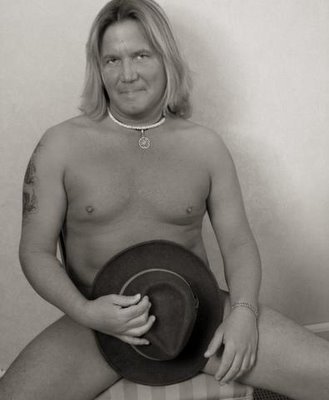 BEIJING, CHINA - Zhou Tong, a sales clerk in a DVD shop in Beijing, is doing a booming business in pirated copies of China's latest banned film -- a film that is mainstream fare in other parts of the world.
BEIJING, CHINA - Zhou Tong, a sales clerk in a DVD shop in Beijing, is doing a booming business in pirated copies of China's latest banned film -- a film that is mainstream fare in other parts of the world.Brokeback Mountain, the cowboy love story that seems poised to sweep the Academy Awards next month, has been unofficially banned from Chinese movie theatres, even though its director is a Chinese hero and its gay themes are socially acceptable for most of China's young urban cinema fans.
"So far we've sold hundreds of copies," Mr. Zhou says. "There's not too much controversy over this movie. Young people can accept homosexuality. But I don't think they'll show it in the theatres yet. Those old bureaucrats can't stand it."
The ban is evidence that Chinese censorship extends far beyond the political suppression for which the regime is already notorious. The old-guard Communists who run the country are as prudish and socially conservative as they are politically repressive. For them, a movie with a gay theme is almost as distasteful as a film sympathetic to the Dalai Lama or Falun Gong.
Brokeback Mountain was directed by Taiwanese filmmaker Ang Lee, who is considered here to be Chinese and has a big following across China because of his martial-arts hit, Crouching Tiger, Hidden Dragon.
Although a few theatre owners in the United States have refused to screen the film, his cowboy saga has swept most of the major awards from critics so far this year, and it is expected to be as popular in Asia as it is in North America.
It is also banned in the United Arab Emirates, but it opens this week in Hong Kong and next week in Tokyo. Yet it has already been rejected by the state-owned company that controls China's film imports. A source at the film importer, the China Film Group, told a Chinese newspaper that the movie would not be screened in mainland China. Beijing imposes a strict limit on foreign films in Chinese cinemas, allowing a maximum of 20 imported entries per year. Almost all are bland family films, with a preference for animated cartoons or penguin movies.
But the gap is filled by China's energetic film pirates, who churn out millions of illegal copies of a vast range of movies every year. As a result of their efforts, Brokeback Mountain is already one of the top-selling movies in DVD shops here.
"We sold out all our copies last week," says Jia Qian, a clerk in a DVD shop in Beijing. "Most of the buyers are young Chinese people. . . . And most of them can accept the homosexual theme, as long as the movie is good."
For decades, China's Communist rulers have officially frowned on homosexuality. It was included under the category of hooliganism in China's criminal code until the late 1990s, and it remained on the Chinese Psychiatric Association's list of mental illnesses until 2001.
Most gays and lesbians in China remain hidden, but there are growing numbers of gay nightclubs and gay websites. A newly published book by a gay Chinese writer, Tong Ge, describes the sexual experiences of more than 500 gay men in eight Chinese cities. The author estimates there are five million to 10 million gay men in China.
Compared with the United States, in fact, Asia may actually be more tolerant of homosexuality because of an absence of religious edicts on the subject. Mr. Lee, the film director, said last month that he thought Asia is more open to the subject than the United States.
The Chinese media have reflected this trend. One of China's biggest airlines, China Southern, published an item about Brokeback Mountain in its in-flight magazine. Even the state-owned English-language propaganda newspaper, the China Daily, has praised the film as a "touching" love story.
In the context of this growing social acceptance, many Chinese movie fans are outraged that Beijing has decided to ban the film. "I don't understand why they are banning it," one person wrote on a popular Chinese website. "Are they doing this to make us support the pirate DVDs again?"
from Globe And Mail
No comments:
Post a Comment